Rose Boyt on her father Lucian Freud: ‘When I read my diary, I was pretty horrified’
The novelist who famously sat for an explicit portrait by her artist father when she was a teenager has written a revealing memoir about the chaos that was her childhood. She talks to Fiona Sturges about living in her ‘genius’ father’s shadow and why it is through writing about their complex relationship that she has made peace with it

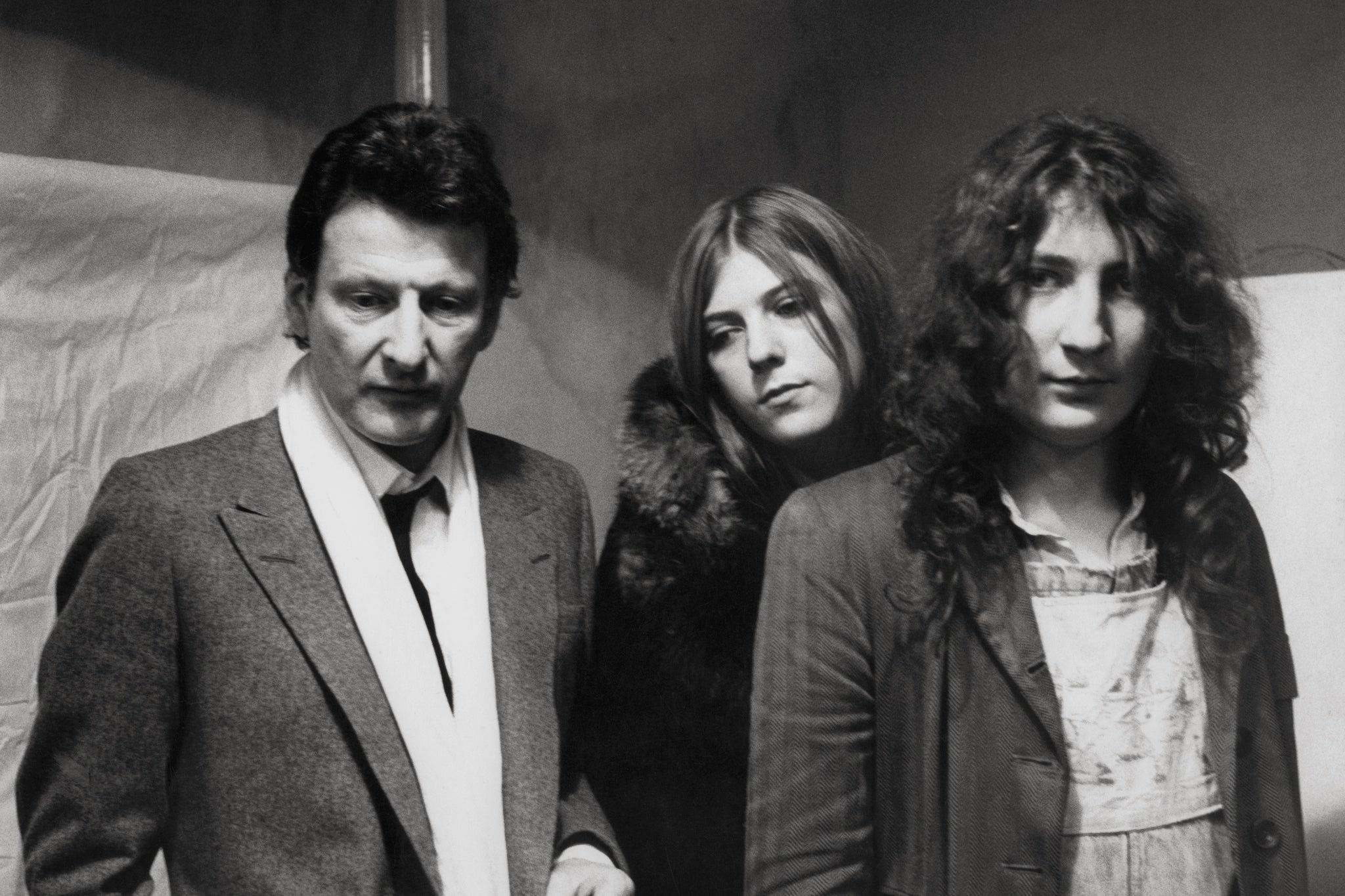
The first time Rose Boyt was painted by her father, Lucian Freud, she was 18 years old. The portrait, entitled Rose 1977-78, saw her reclining naked on a sofa, legs apart, with a hand resting on her forehead. Neither artist nor sitter spoke about the pose beforehand; that Boyt would be unclothed was assumed. “The one thing I asked was that he wouldn’t paint my hairy legs,” she recalls. “And I refused to take off my mascara.”
Boyt would sit for the painting three or four times a week, the pair of them working long into the night. “It was very arduous, very painful physically,” says Boyt. “Staying that still, you get to the point where you’re practically numb, almost like you’ve had an epidural.” Nonetheless, being painted was “just an ordinary thing that happened and my father entertained me so completely every session that I left the studio feeling elated. At the time, I was so disconnected from my feelings that I just went around being really thrilled at it all. I think I postponed feeling anything until later.”
Now Boyt, a photographer and author of novels including Sexual Intercourse and Hows Your Father [sic], is publishing a memoir in which she interrogates those “postponed” feelings. Naked Portrait is an emotionally complex examination of her relationship with her father, who died aged 88 in 2011, and the three occasions that she sat for him.
It is also an account of her childhood as one of five siblings (four of them Freud’s children) in a single-parent household. Her mother, Suzy Boyt, was a painter who met Freud at the Slade School of Art; she was a student and he was a part-time teacher. The school decided to overlook Suzy’s first pregnancy, though when the second one became apparent, she was asked to leave (Freud, inevitably, was not).
Boyt says he wasn’t a distant father – “I saw a lot of him, so I didn’t have the feeling of his absence” – but he wasn’t exactly present either. She is one of 14 acknowledged children that the artist had with various mothers (her half-siblings include the writer Esther Freud, fashion designer Bella and poet Annie). Freud married twice though, as Boyt points out in the book, “he was not cut out for domesticity”.
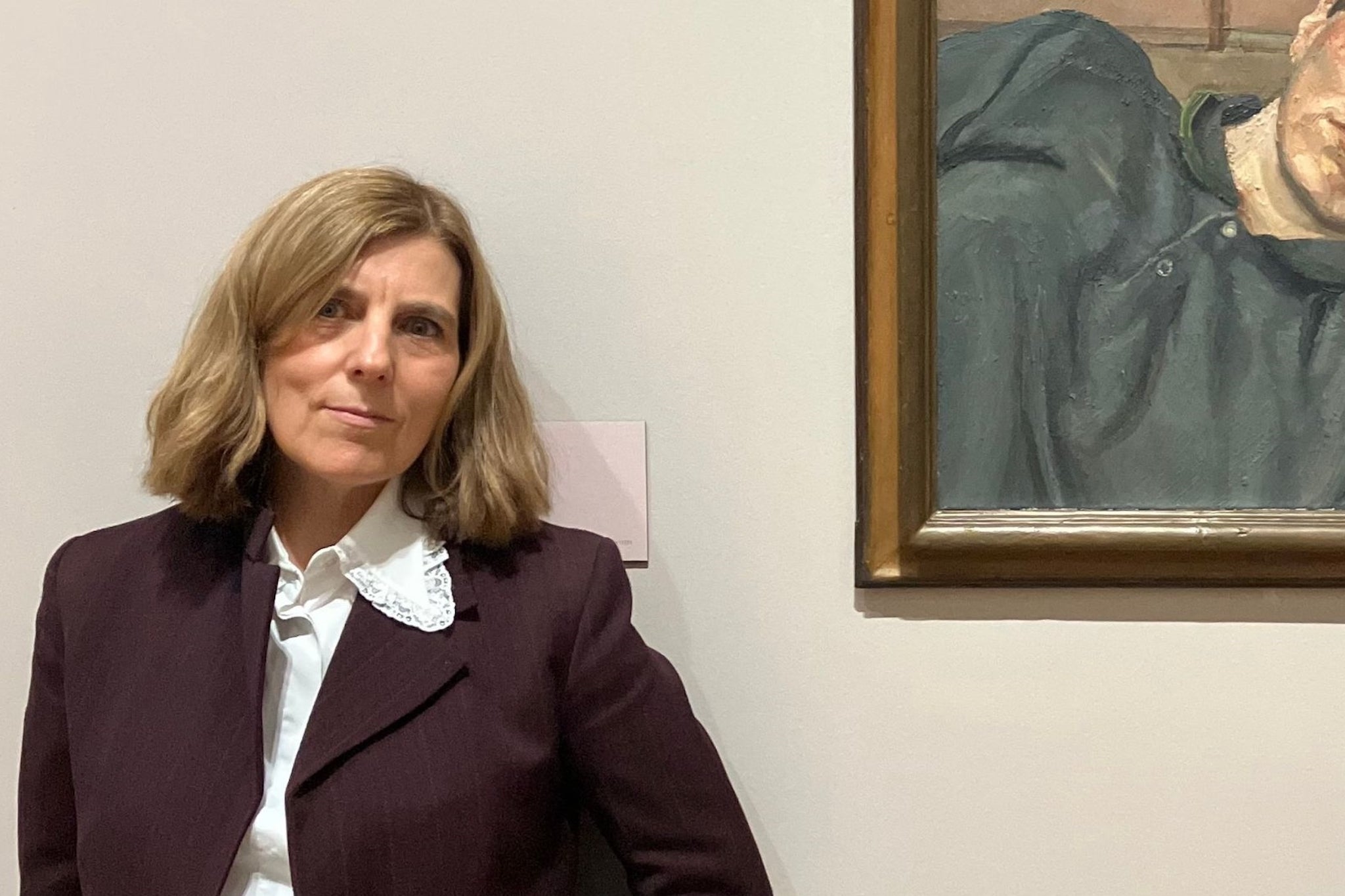
Boyt, now 65, is talking to me over video call from her home in Islington, London, where she has lived for more than 30 years with her husband, Mark Pearce (the couple have two adult children together and a son from Pearce’s first marriage). She is a thoughtful, unflappable presence given to lengthy conversational pauses as she ponders her life and her family. The seed for the memoir was sown in 2016 when Boyt was clearing out her house to make way for building works and came upon a box of diaries.
Written when she was in her early 30s, they spanned 18 months during which she sat for her second portrait, this time clothed and sporting a pixie cut. During these sittings, Boyt furtively wrote notes detailing her and her father’s conversations. “I had a piece of paper that I folded up into a lump in my pocket in my skirt, along with one of those little pens you’d get in betting shops,” she recalls. “Whenever we took a break, I would go into the tiny bathroom and write everything down.”
Boyt never told him what she was doing and says she was motivated by “a very strong consciousness that I wanted to immortalise him while he was immortalising me. I felt like I couldn’t let all his incredibly entertaining, amusing and terrible stories just go in one ear and out the other and I didn’t want to forget.”
One of the most eye-watering tales was of an all-male black-tie dinner party attended by Freud in London where, following an innocuous first course, a phalanx of young men appeared and served each guest a dish under a silver-domed cloche. The cloches were removed with a flourish to reveal a human turd on each plate.
“All the men tucked in apart from my father, who dropped his unfurled napkin on his plate and pushed it all away,” Boyt writes, “not with a dramatic gesture of disgust but gently, almost surreptitiously just far enough towards the middle of the table to remove it from under his nose.”
Asked how she felt about her father’s lack of boundaries (he would also regale her with tales of his sexual escapades), Boyt says: “I think I had a very high tolerance for listening to salacious stories. I didn’t really realise that at the time and it was only when I read the diary that I was pretty horrified by the content of some of his anecdotes. And the fact of me being a daughter and a young woman, those things somehow weren’t taken into consideration.”
Boyt has some pretty remarkable stories of her own, if less extreme than her father’s. There’s the time her mother sold the family home, bought a decommissioned cargo ship and sailed around the world with her children and her sea captain boyfriend, Uwe, for 18 months until the ship finally sank. Boyt was seven and was often left in charge of her siblings; at one point, the youngest, Kai, fell overboard and had to be rescued. It was tough for Boyt, though for her mother it was “sort of romantic, an adventure. Why wouldn’t you go and live on a ship if you could find a way to do that? She just loved excitement and doing things a different way.”
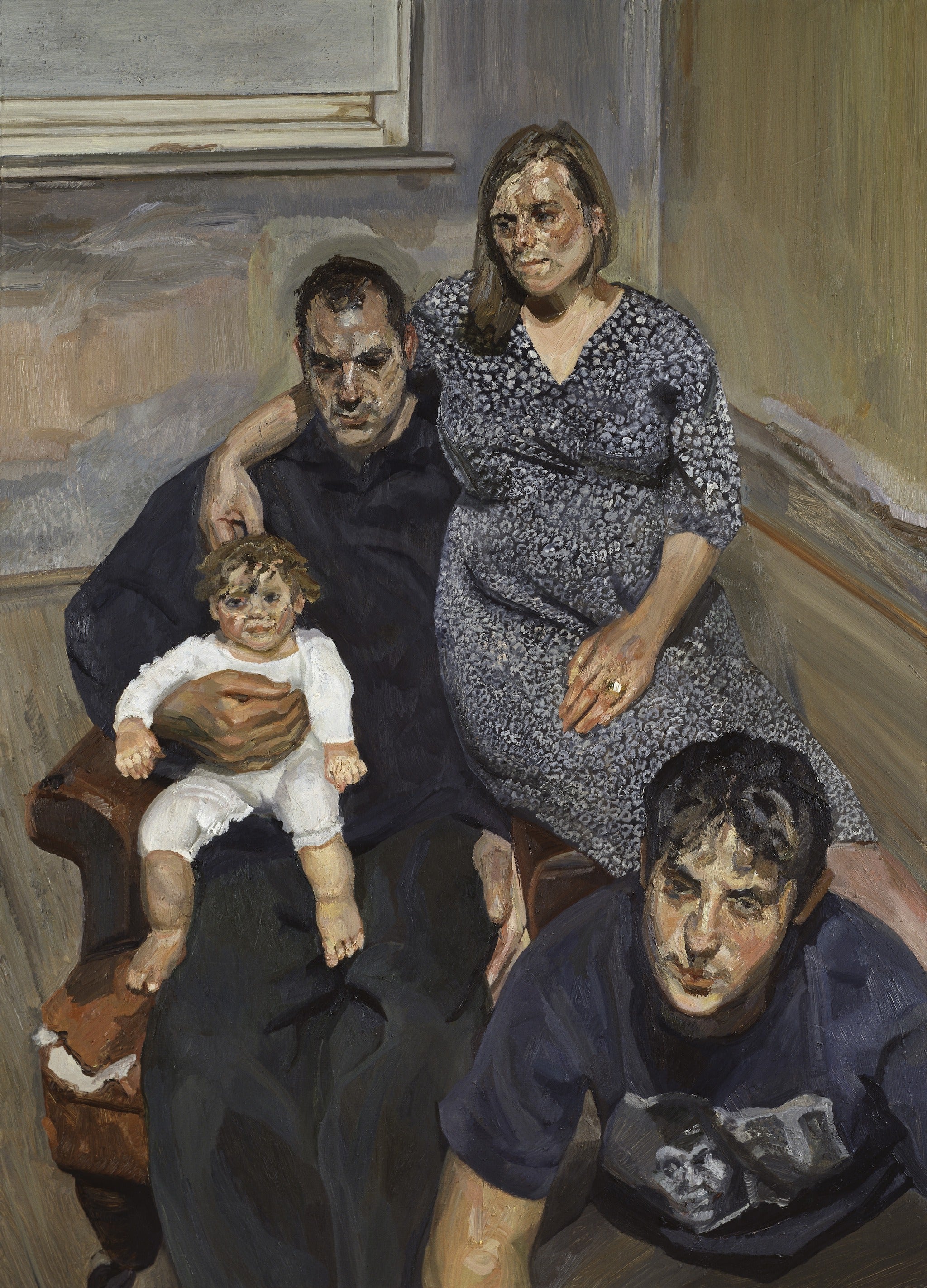
Then there was the time Freud sent her to New York in 1978 to attend a show of his paintings on his behalf and put her in touch with a friend who worked at Andy Warhol’s Factory. Warhol took an instant shine to Boyt, and asked if she would be photographed for Interview magazine (she agreed but doesn’t recall what happened to the photos). Later, he took her to Studio 54 – “and then he asked me to marry him. I said yes, and so he drew a wedding ring with ‘AW’ on it on my finger.”
She adds that it wasn’t a serious proposal. “I think he maybe thought I was a work of art and he was going to sign me. He wasn’t at all sexual or interested in me in that way. Afterwards, I went to the top of the World Trade Center where there was a Polaroid photo booth and I took a portrait of myself holding up a hand to show my ring finger.” That Polaroid, showing Boyt as a vision of youthful insouciance, now adorns the cover of Naked Portrait.
Growing up, I felt like I was this illegitimate, poverty-stricken guttersnipe so I didn’t feel entitled to do something [important] or be somebody at all
If Boyt’s early life sounds like an endless series of adventures, there was hardship too. With five children, her mother often struggled to make ends meet (she refused to ask Freud for money). Boyt had her own financial woes after leaving home at 15. She initially moved in with a boyfriend, living on his meagre wages from a factory job, but then they split up and she moved to a hostel in Hoxton where the rent was £5 a week. By this time, she was studying at college, which gave her a small grant and lunch vouchers.
Boyt says having a “genius father” wasn’t easy. “You grow up with the feeling that they must be this oracle and that they know everything, and that’s quite confusing. It also means people react to you in a particular way. This wasn’t [an issue] so much when I was a child as he wasn’t so famous then – and anyway we were our mother’s children. But when I got older people had expectations.”
Did she feel pressure to be creative like her dad? “No, I didn’t feel that at all. Growing up, I felt like I was this illegitimate, poverty-stricken guttersnipe so I didn’t feel entitled to do something [important] or be somebody at all.”
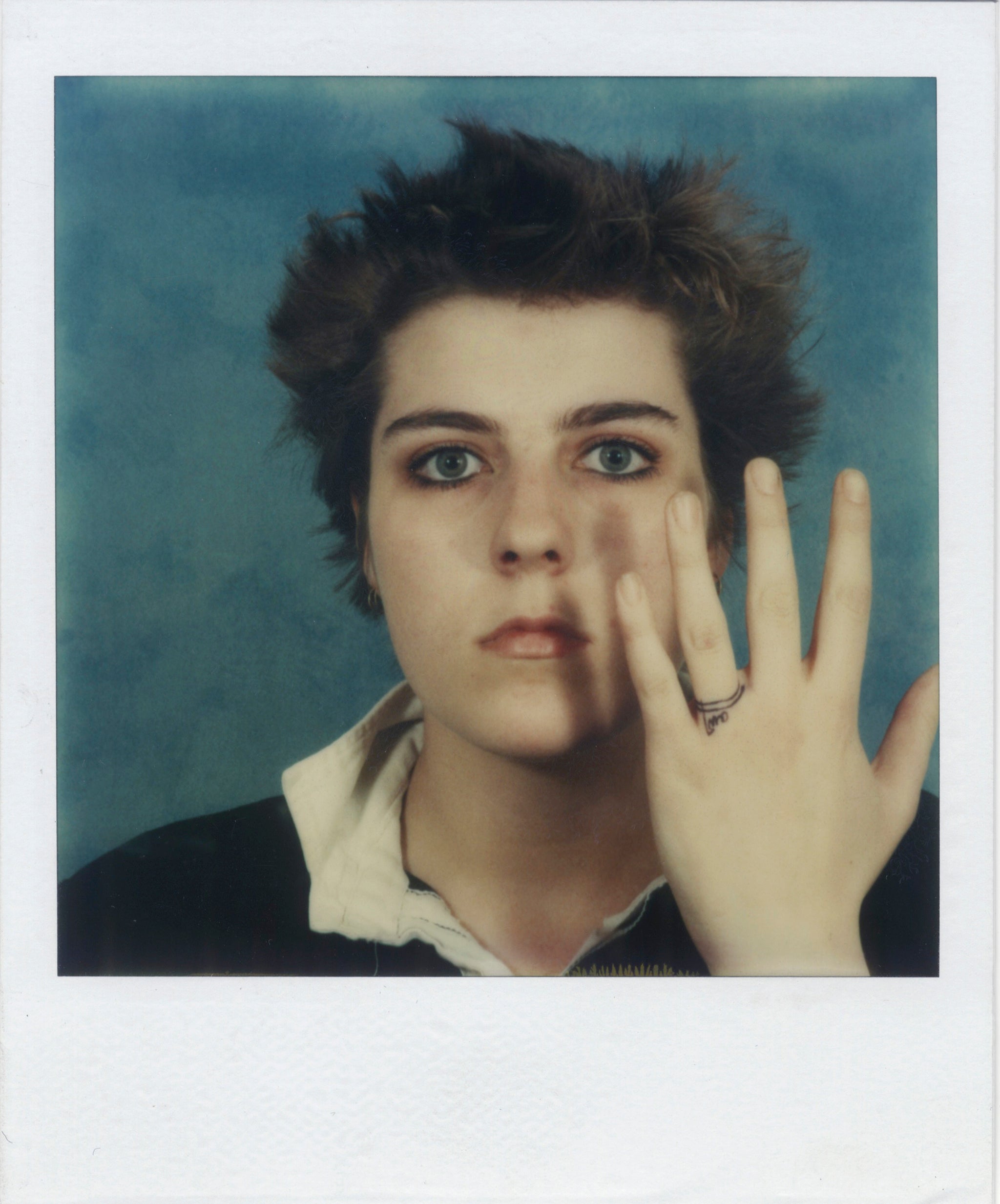
Her confidence grew at university where she studied English Literature and where the novelist AS Byatt was her tutor. “I remember saying to her near the end of my degree, ‘It’s nearly the end of the third year. I don’t know what I’m going to do.’ I meant that I wouldn’t be getting a grant any more, so how was I supposed to live? But she said to me, ‘Oh, I’m sure you’re going to be a writer.’ Two weeks later, I sat down and started writing a book.”
It’s surprising to hear that Freud didn’t approve of her choice of career. “He felt that it was an inappropriate choice for me. He thought that I was going to be very lonely.” When she showed him the manuscript for her second book, Rose, a novel based on the chaos of her childhood, he was livid and “suggested I put it in a drawer for a few years”. She published it anyway.
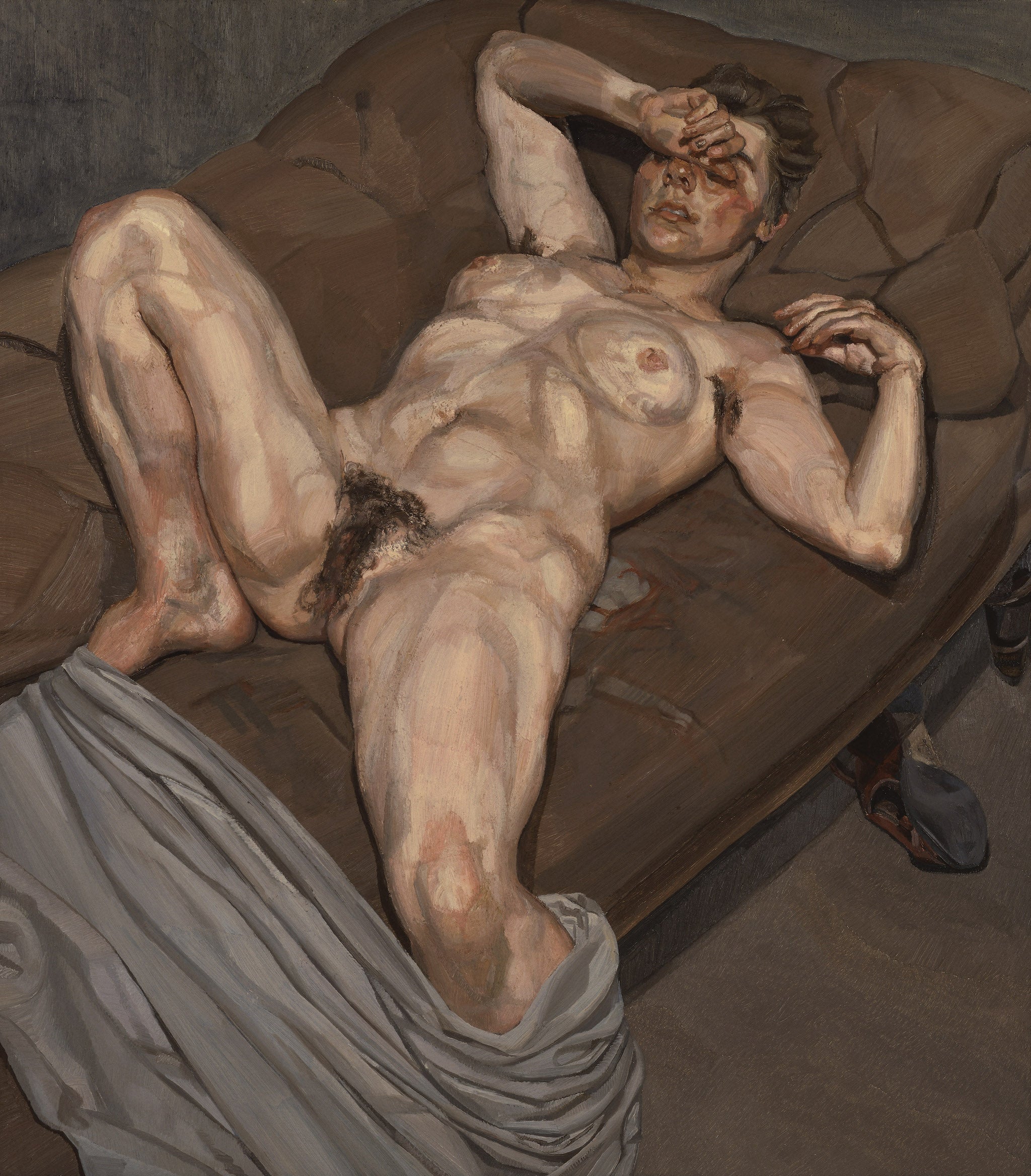
The last time Boyt sat for her father was in 1998, this time with her husband, stepson and baby daughter, Stella. In the resulting painting, The Pearce Family, she is sitting upright on the edge of an armchair and wearing a floral dress – an unusually conventional pose for her. The painting, which, like Rose 1977-78, is now in a private collection, captures what Boyt had already begun to understand about herself – “that I was very grown up and quite sensible. There was a bit of me that was always very organised mentally and emotionally, which is very strange having been nurtured in quite a chaotic way.” It was a quality her father evidently saw in her too; out of all his children, it was her he chose as the co-executor (with a lawyer) of his estate, estimated at his time of death to be worth £96m.
Writing the book, and reliving the intensity of the sittings, has proved cathartic for Boyt. She says: “It felt healing because I worked through it all and I came out with compassion for my parents, and for myself.” To look at Freud’s paintings of her is to see herself through her father’s eyes. She has since said she was “shocked” at the explicit nature of that first portrait, but at the time she gave it little thought.
“I just trusted that he would be able to see me. Or rather, he would see his version of me. And I was alright with that.”
‘Naked Portrait’ is published on 30 May by Picador






Join our commenting forum
Join thought-provoking conversations, follow other Independent readers and see their replies
Comments